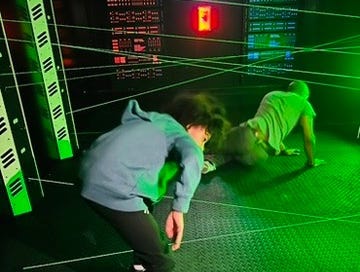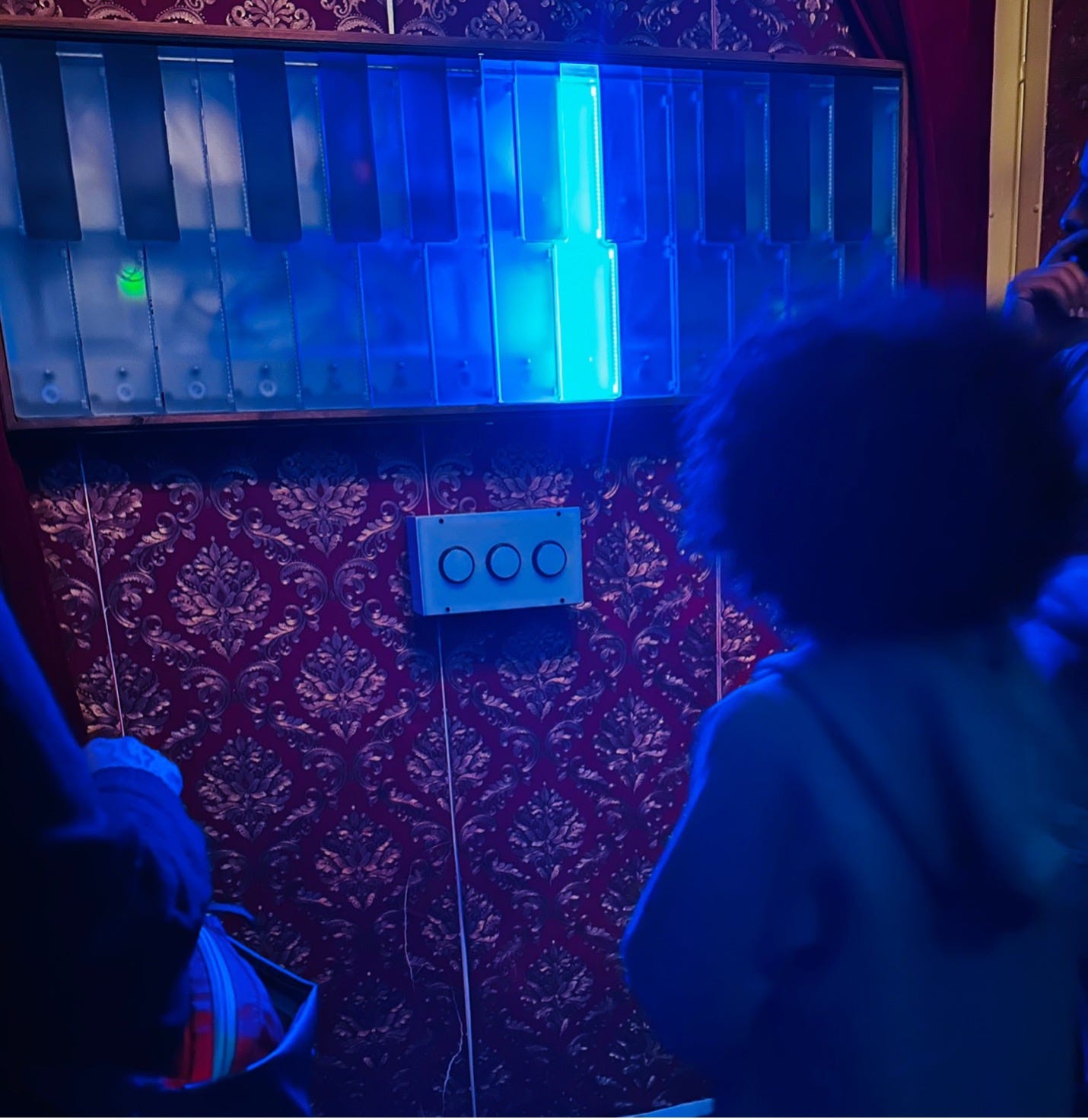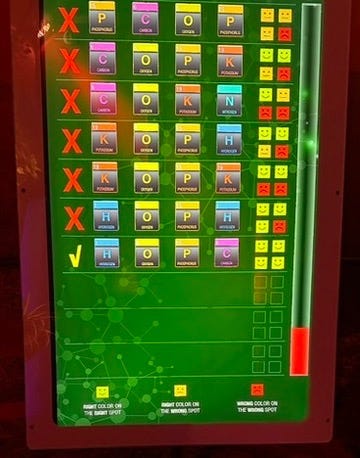Saturday was Y-Day for my daughter’s family and we were invited.
Y-Day is their adaptation of Yes Day. It isn’t saying yes to everything my grandson wants—as in the Yes Day movie with Jennifer Garner. Rather, it’s a day when each of the members of her family plans adventures. When it is the parents’ turn, it’s usually a surprise. The others don’t know where they are going until they pile out of the door and set off.
Saturday was my grandson’s turn and he invited my husband and me to join them at the movies, though he called me to say, “I recommend you see a different movie.” As an almost twelve-year-old, he’s learned I don’t find gratuitous violence entertaining and he wanted to see the latest Marvel movie at the mall.
Next step after the movies—games.
Like other malls where stores have closed, this mall has turned to offering experiences—lots of them, including climbing walls, trampolines, skating rinks, game arcades, bumper cars, miniature golf, and make-it-take-it arts and crafts.
It seems to be working well. That day the parking lots were jammed and the lines to get into various experiences were long.
My grandson chose a time travel experience called Time Mission. The way it works is that your team selects a group name from a selection (we were Thoughtful Geese) and gets wrist bands that unlock doors into multiple tiny rooms or portals with instructions on the outside door. Inside the portals, we traveled from the past, like to 1831 where we had to identify a new species, and into the future, like to 2030 where we had to evade a laser security system in a biotech firm to liberate life-saving research (pictured above).
Games are timed and teams accrue points toward a final score
“You are going to really appreciate these games,” my daughter said, “because some of them are based on executive function skills.” She knows that I’ve long been fascinated by executive function (EF) skills because they underlie all learning and are one of—if not the best—predictors of academic achievement and positive mental health. Furthermore, in a world where attention has become a hugely important currency and attention fracking by technology is rampant, we all need to learn skills to manage our own attention.
Here are three of the games we played.
1. It was 1771 in Italy
We were appointed to create a new keyboard instrument. We watched a pattern of keys flashing in a sequence on the screen, creating a melody. We then had to tune the instrument by pushing the keys in the right order to replay the melody.
This game was asking us to use our working memories—a foundational component of EF skills.
2. It was 4047 on Mars
We had to repair a failing greenhouse before an essential food source vanished. You can see on the photograph below that the smiley faces gave us clues—red is the wrong element, wrong placement in the row. Yellow is the correct element, wrong placement. Green is the correct element, correct placement.
It took our team seven trials. We had to use our working memories to remember the rules, think flexibly and not go on automatic but instead reflect and use self-control—all foundational components of EF.
3. It was 55 in Tartarus
We had to escape an underworld labyrinth, which according to Greek mythology was built to imprison the Titans. You know the kind of thinking it takes to escape a labyrinth. Yes—working memory, reflection, thinking flexibly and self-control.
Y-Day got me asking WHY questions.
Like the malls losing customers, why can’t schools include opportunities for EF-based games (science classes, clubs, after-school activities, academies, etc.). Kids love games and they could create them and play them specifically to build executive function skills. Just as my children once built markets at school to understand how their community worked, creating EF games could help today’s children understand how their minds work.
It's not a panacea, but activities that promote EF skills could help address the absenteeism and engagement challenges in schools today.
And why can’t kids—not adults—be the main creators of these games, even if they are simple versions. I can only imagine how much fun adults had creating the Time Mission games. And I saw how much fun Kathy Hirsh-Pasek of Temple University and her team had in creating Playful Learning Landscapes activities at playgrounds, bus stops, libraries, and supermarkets, many of which promote EF skills. Just like Y-Day builds on my grandson’s need for some autonomy, creating games could give students some positive autonomy.
It's not a panacea again, but having autonomy at school could possibly spread to giving students other opportunities for feeling choiceful over their school lives, which could even lead to their setting goals for themselves, thus better engagement and better learning.
And why can’t kids be prompted to talk about how the skills in EF games could help them in other academic subjects. If they are stuck in a Math, English or Social Studies problem, they could think flexibility, try different solutions and learn to take on challenges. Naming skills, reflecting about their use as well as teaching others to use them build stronger skills.
This comes closer to a panacea. If kids and adults begin to use EF glasses to see their school work—and their lives, it could improve both their academic health and mental health.
Who knew when I set off on a Y-Day adventure on Saturday, it would lead me to these WHY questions, that ultimately become WHY NOT try questions.
I'm so grateful you're reading Research to Thrive By on Substack! My book, The Breakthrough Years is available for purchase here.









You are right, there can be so many engaging ways to learn that can be great opportunities for kids.